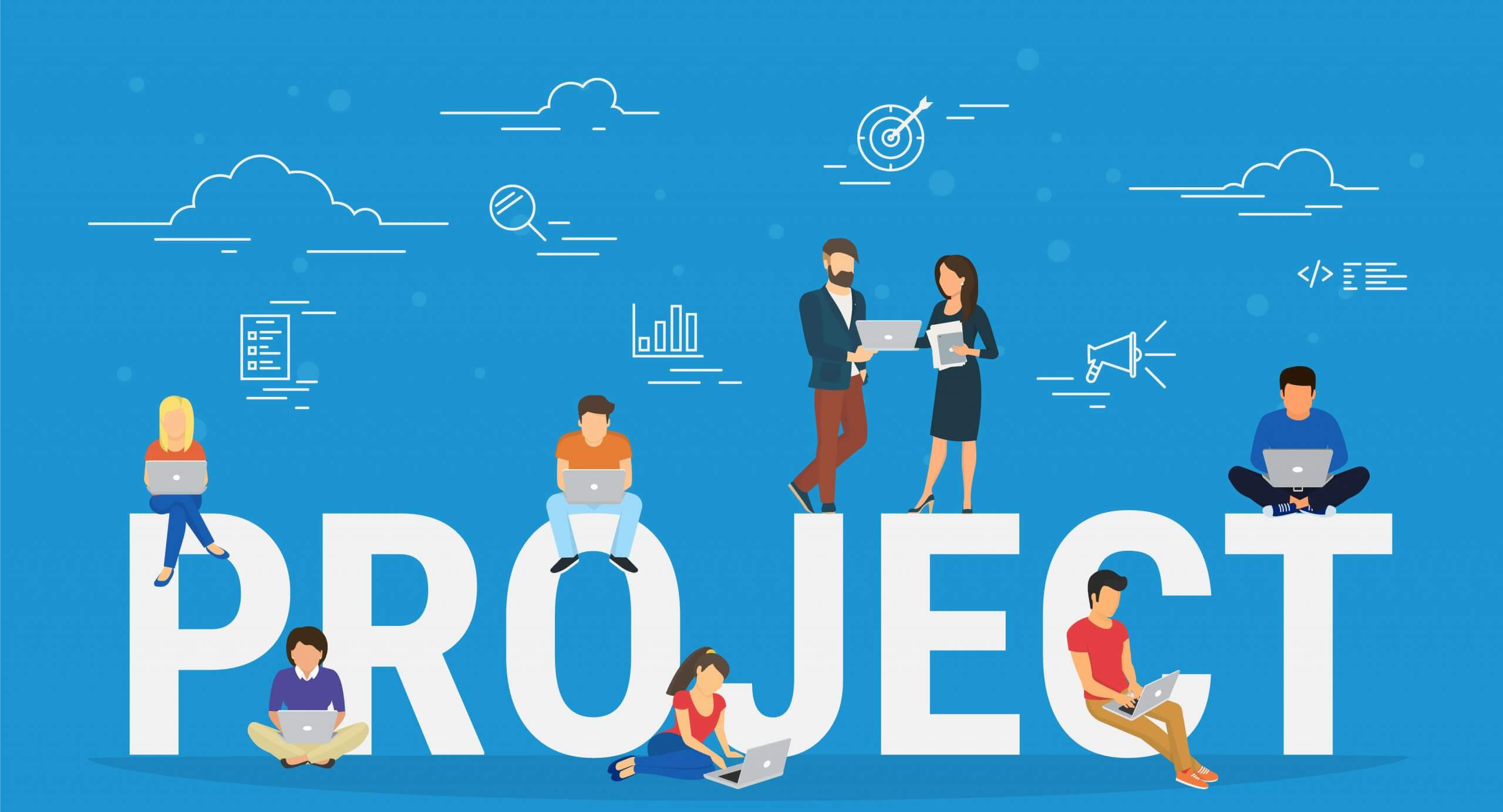Have you ever wondered what truly drives the success of a gaming console? It's a big question, you know, and something many people think about. Often, the answer points to something we call the "party project." This idea refers to those big, internal game developments made directly by the company that built the console itself. They are, in a way, the console's very own creations, its signature offerings that really set it apart from everything else out there.
These special projects, or "first-party games" as they're often called, are pretty important, that's for sure. They are built from the ground up to really show off what the console can do. Think about it: when a company makes a game just for its own machine, they can push the limits, make things look great, and create experiences you just can't get anywhere else. It’s like a custom-made suit, you know, fitted perfectly for its wearer, and that’s a very big deal for players.
So, why does this matter so much for us, the players? Well, these "party projects" often become the main reason someone picks one console over another. They aren't just games; they're experiences that define a platform. They create excitement, they build communities, and they, quite frankly, sell systems. It’s a bit like being "in the party" versus "at the party" – being "in" suggests deep involvement, a core part of the action, which is what these games represent for a console, actually.
Table of Contents
- What is a 'Party Project' in Gaming?
- The Impact of First-Party Titles on Console Sales
- First-Party vs. Third-Party: The Ongoing Debate
- Building a Platform Strategy with Party Projects
- Frequently Asked Questions About Party Projects
- Looking Ahead: The Future of Console Gaming
What is a 'Party Project' in Gaming?
When we talk about a "party project" in gaming, we're really talking about a game developed and published by the same company that makes the console. These are often called "first-party" games, and they are pretty exclusive to that particular system. Think about games like Mario or Zelda for Nintendo, or God of War and Spider-Man for Sony's PlayStation. These are, you know, very much the console's own creations, and they show what that hardware can really do.
These projects are not just any games; they are often big, ambitious endeavors. They get a lot of resources, a lot of development time, and a lot of marketing push. This is because they represent the console's identity, in a way. They are meant to be system sellers, drawing people in and making them choose one brand over another, and that's a key part of the whole business, too it's almost.
A "party project" is different from a "third-party" game. A third-party game is made by an independent developer, like Capcom or Square Enix, and can usually be played on many different consoles. So, for instance, a game like Resident Evil might come out on PlayStation, Xbox, and PC, but a Mario game will only ever be on a Nintendo console. This distinction is really important, you know, for understanding the market, and that is that.
- Cardi B Tattoos
- Most Beautiful Women On The World
- Horoscope Of November 11
- Killa Dogz
- Kirsten Yule Zaagman Miss Tennessee
The Impact of First-Party Titles on Console Sales
The success of these "party projects" directly affects how well a console sells. It's a pretty straightforward connection, actually. If a console has a lineup of highly anticipated, well-received first-party games, people are much more likely to buy that console. These games create a unique selling point, something that competitors just can't offer, and that's a very big draw.
Consider Sony's strategy, for example. They have consistently released first-party AAA games that have sold incredibly well. These titles often get a lot of buzz, critical acclaim, and they drive console sales. It's clear that, you know, making over a billion dollars per year from first-party games shows just how valuable they are to the company's bottom line, and that's a lot of money.
These games don't just sell consoles at launch, either. They keep the momentum going throughout the console's lifespan. New "party projects" can spark renewed interest, bring in new players, and keep existing owners engaged. It's a continuous cycle of excitement and investment, basically, and that means a steady stream of new content for everyone, you know.
First-Party vs. Third-Party: The Ongoing Debate
There's always been a big discussion in the gaming world about the balance between first-party and third-party games. Some argue that a console lives and dies by its own "party projects," while others believe strong third-party support is essential. Both sides have valid points, you know, and it's not a simple answer, really.
The Challenges for Third-Party Support
Some consoles, despite having a loyal fanbase, struggle to get consistent high-end third-party support. The Nintendo Switch, for example, has seen many big-selling AAA games skip its platform. Even if some third-party games sell extremely well, it's often the case that, you know, the biggest, most graphically demanding titles just don't make it over, or they come much later, and that can be annoying for owners.
There are many reasons for this, of course. Hardware limitations can be a factor, making it difficult for developers to port their games without significant compromises. Sometimes, there are also business decisions involved, like whether a game will sell enough copies to justify the development effort. It's a bit of a tricky situation, you know, for everyone involved, and that's just how it is sometimes.
The idea that "Switch 2 will live and die by Nintendo's own" is a sentiment many players share. This suggests that even with a new console, the reliance on internal "party projects" will remain very high. It implies that, you know, third-party games might still suffer the same fate as they did on the first Switch, perhaps even worse due to issues like cartridge costs, and that's a concern for some.
The Strength of First-Party Offerings
Despite challenges with third-party support, a console can still thrive if its "party projects" are strong enough. Nintendo is a prime example of this. Their consoles consistently sell well because their own games are so popular and unique. People buy Nintendo consoles specifically for Nintendo games, and that's a pretty powerful position to be in, you know.
Sony also demonstrates the immense value of first-party titles. Even with a strong presence of third-party games on their platform, their own studios produce massive hits. The idea that "Sony first party aaa games are basically ubisoft games" might be a common sentiment for some, suggesting a certain open-world formula, but it's also true that, you know, Ubisoft would probably like to have even 50% of the sales numbers Sony's first-party games achieve, and that's a big difference.
These internal projects are not just about sales, either. They are about building a brand, creating a legacy, and fostering a unique gaming culture. They are the core identity of the platform, the reason why people feel a connection to a particular console. It's more than just hardware; it's the experiences that come from those "party projects," very much so.
Building a Platform Strategy with Party Projects
For any console maker, having a clear strategy for their "party projects" is incredibly important. This involves investing heavily in their own development studios, nurturing creative talent, and giving them the freedom to make truly innovative games. It's about a long-term vision, you know, not just quick wins, and that takes a lot of planning.
This strategy also means understanding the market and what players want. It's about creating diverse experiences that appeal to a wide audience, from deep narrative adventures to fun, family-friendly titles. A good "party project" lineup covers many bases, ensuring there's something for everyone, basically, and that's a smart way to go about it.
Furthermore, the strategy often includes how these games are released. Whether they are exclusive to the console or eventually come to PC is a big decision. Some argue that, you know, if a company had its own PC store and launcher, then its PC games wouldn't be considered third-party, just like Microsoft's PC games aren't. This shows how intertwined these decisions are with the overall platform strategy, and that's a complex topic.
You can learn more about gaming platform strategies on our site, and link to this page here.
Frequently Asked Questions About Party Projects
What does "first-party" mean in gaming?
First-party in gaming means a game developed and published by the same company that manufactures the console it's played on. So, for example, a game made by Nintendo for a Nintendo console is a first-party title. These are, you know, the console's very own games, and they are usually exclusive to that system, and that's a key distinction.
Why are first-party games so important for console sales?
First-party games are super important for console sales because they offer unique experiences you can't get anywhere else. They show off the console's capabilities, create a strong brand identity, and give people a compelling reason to buy that specific system. They are, in essence, the main draw for many players, very much so, and they often become cultural touchstones.
Do third-party games always struggle on certain platforms?
Not always, but some platforms do face challenges with consistent third-party support, especially for big, graphically intensive games. Factors like hardware differences, development costs, and expected sales can influence whether third-party developers choose to support a platform fully. It's a bit of a balancing act, you know, for developers to decide where to invest their efforts, and that's a constant consideration.
Looking Ahead: The Future of Console Gaming
The role of "party projects" will only continue to grow in importance. As technology advances and consoles become more powerful, the ability to create truly unique and immersive experiences becomes even more vital. Console makers will keep pushing their own studios to innovate, to deliver those must-have games that define a generation, very much so.
The competition is intense, and having a strong lineup of internal titles is a major differentiator. It's what keeps players coming back, what sparks those conversations online, and what ultimately shapes the future of gaming. So, when you think about what makes a console special, remember the "party project" at its core, you know, because that's where a lot of the magic happens.
The discussions around third-party support will also continue, of course. While some believe that "3rd party devs like Level 5, Square Enix, Atlus and Capcom will support Switch 2," the question remains how consistently and with what level of parity compared to other platforms. It's a constant push and pull, you know, between what a platform offers internally and what it attracts from outside, and that dynamic is always changing.
For more insights into the gaming industry, you might find interesting perspectives on GamesIndustry.biz, which often covers these very topics, you know, in depth. They talk a lot about the business side of things, and that can be very informative.
Related Resources:
Detail Author:
- Name : Abigail Johnson
- Username : queen.gaylord
- Email : bosco.sienna@kovacek.com
- Birthdate : 1970-05-01
- Address : 437 Verner Plains Apt. 886 East Anita, ID 13865
- Phone : (678) 500-2776
- Company : Toy and Sons
- Job : Respiratory Therapist
- Bio : Provident nostrum minus non voluptates optio sit. Itaque repellendus cumque officia. Dolorum eius nihil impedit pariatur et ad nisi.
Socials
instagram:
- url : https://instagram.com/nakia_strosin
- username : nakia_strosin
- bio : Et fugit sed debitis ipsum. Facilis odit quisquam rerum.
- followers : 5991
- following : 1135
linkedin:
- url : https://linkedin.com/in/strosinn
- username : strosinn
- bio : A consequatur consectetur quia ea ipsum.
- followers : 651
- following : 1175


